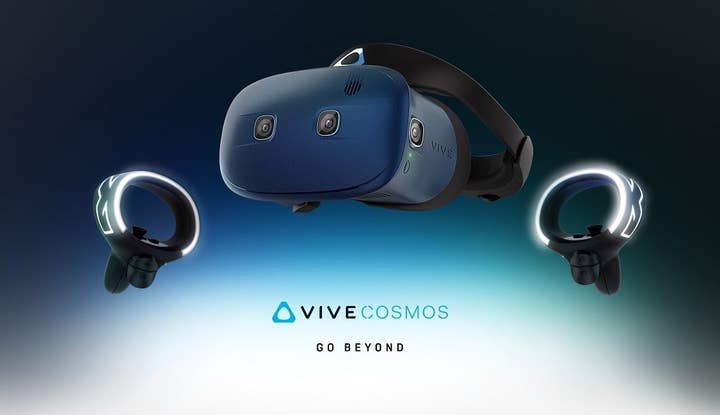HTC Vive targets mobility and ease of use with new Cosmos headset
New device will have "capability to be powered by more than a traditional gaming PC"
HTC Vive has made further strides toward opening up the VR market to new customers, announcing a new, more flexible headset.
The company's new hardware, Vive Cosmos, will be a more self-contained device than the Vive, requiring "no external base stations." HTC emphasised qualities like comfort and ease of set-up and use, suggesting that it is targeting people who have found previous VR hardware too complex.
According to HTC Vive's general manager for the Americas, Daniel O'Brien, more than 85% of "VR intenders" consider ease of set-up and use the most important factor when purchasing VR hardware.
"We believe Cosmos will make VR more easily accessible to those who may not have invested in VR before and also be a superior experience for VR enthusiasts," O'Brien said in a statement.
However, while Vive Cosmos will not require the same sensor array as the Vive, it isn't entirely standalone. Indeed, HTC offered limited information about the hardware's capabilities, stating only that it "has the capability to be powered by more than a traditional gaming PC."
A launch video does not show any wires connected to the Cosmos, and also places it next to a smartphone. The information released by HTC also stated that Cosmos "can be taken on the go to new play environments."
Vive Cosmos developer kits will start shipping in early 2019. No details on pricing were offered.


